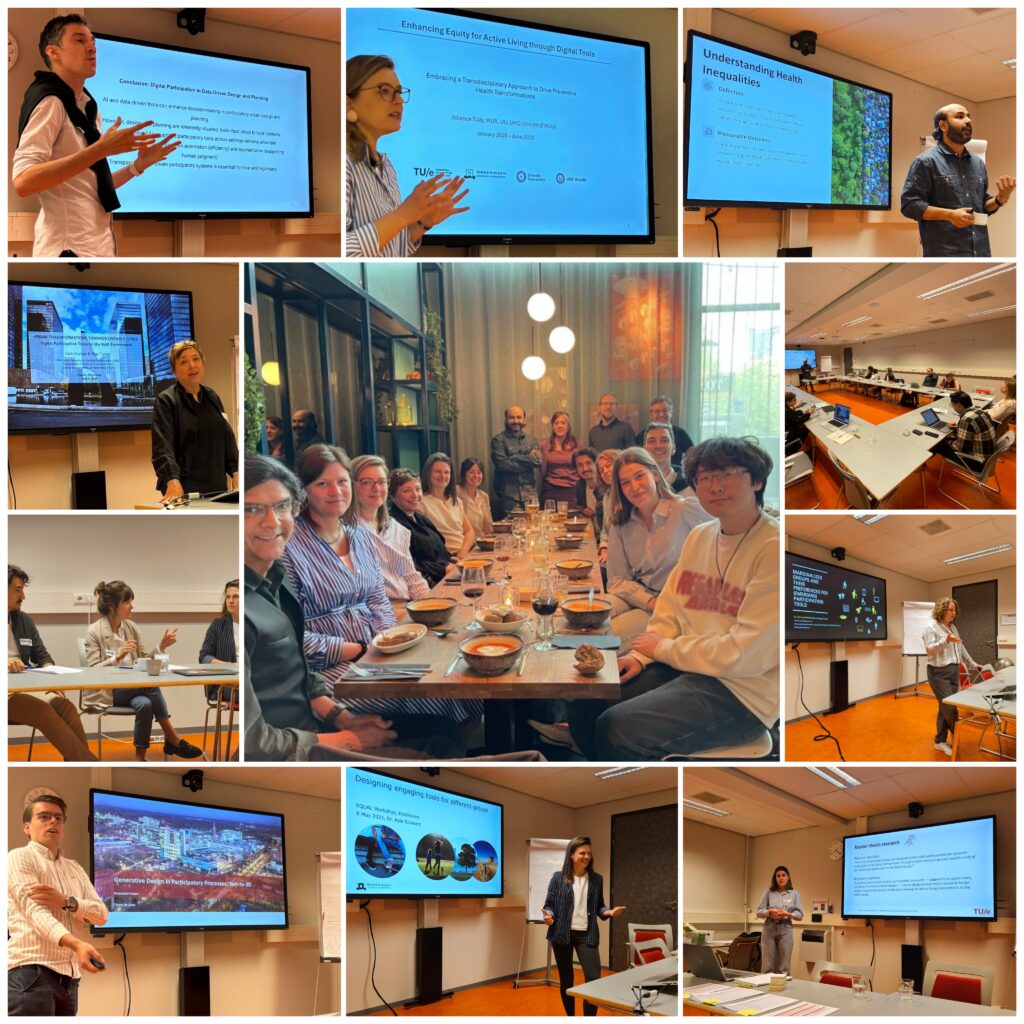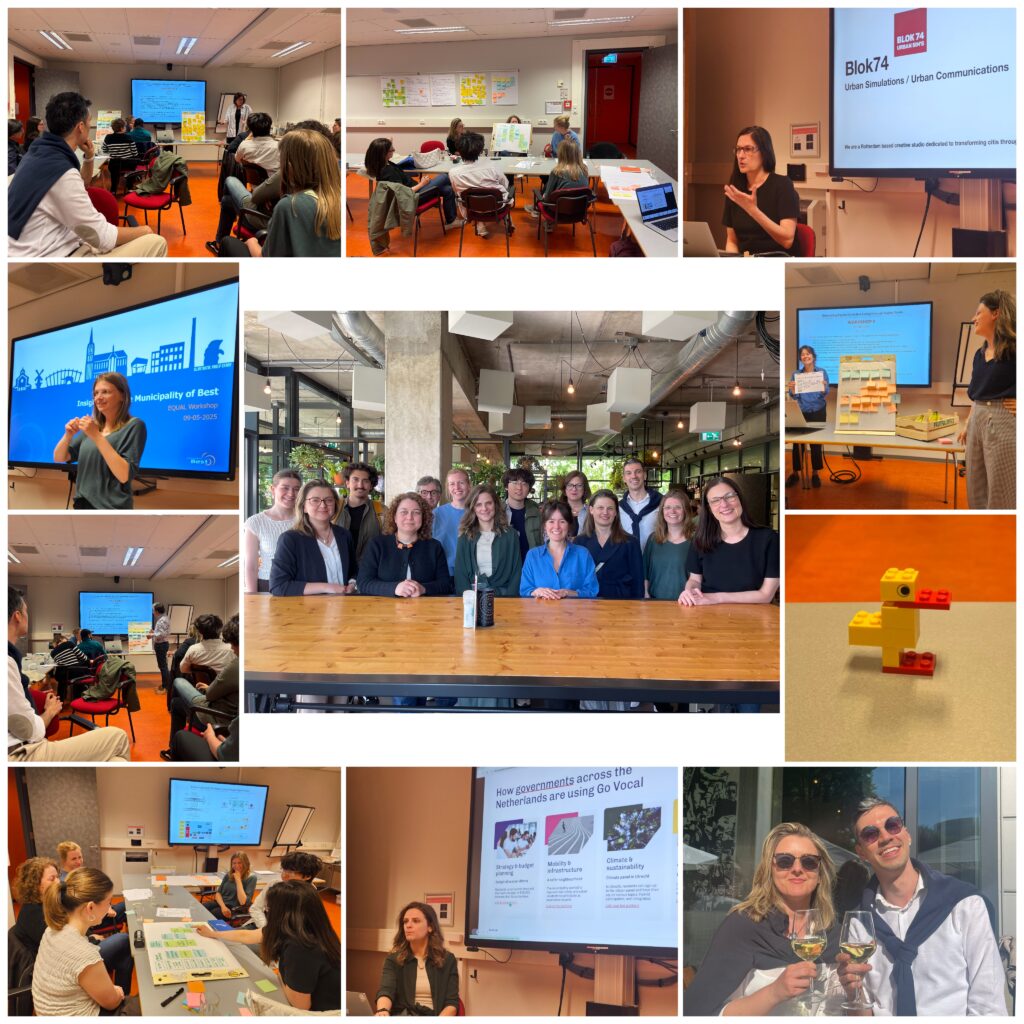Enhancing Equity for Active Living through Digital Tools
Research Line: Preserving Health / Seed Call: i4PH October 2024
Active lifestyle interventions, like cycling and walking infrastructure and urban green spaces, promote physical activity, improve public health, and enhance quality of life by altering infrastructure and amenities. These interventions benefit physical (e.g., better air quality, less noise pollution) and social environments (e.g., spaces for socializing). However, marginalized groups, such as those with low socioeconomic status, refugees, youth, and older adults, often face barriers (e.g., unsafe facilities, limited social networks) that hinder their access and participation, exacerbating social and spatial inequities. Addressing these challenges requires inter- and transdisciplinary research that prioritizes co-design and bottom-up decision-making. Strategies include improving access to affordable facilities, promoting active transportation, and enhancing neighborhood safety to ensure equity in active lifestyle opportunities.
Objectives and Route to Impact
To meet the needs of marginalized groups, it is essential to promote their engagement and empower them to participate in decision-making processes. However, traditional citizen engagement methods often exclude these groups due to complex approaches like formal meetings or lengthy consultations. Recent studies suggest that digital participation tools, such as virtual and augmented reality, can increase engagement when co-created with the target group, reflecting their language, comprehension, and social dynamics. These tools can facilitate equitable participation by enabling marginalized groups to explore design scenarios and collaborate on active living interventions with decision-makers.
Despite their potential, current studies on digital tools for equitable engagement lack interdisciplinary approaches and fail to provide replicable solutions. The EQUAL project addresses these gaps by employing inter- and transdisciplinary strategies to explore how digital tools can support the participation of marginalized groups in designing active living interventions.
Key activities of the EQUAL project include:
- Conducting a literature review and interviews with societal partners (e.g., City of Eindhoven, City of Utrecht) to understand factors influencing marginalized groups’ health and active lifestyles, and the role of digital tools in engaging them.
- Forming a consortium of ~10-15 interdisciplinary researchers and city representatives.
- Hosting a two-day workshop to discuss findings and collaboratively develop a process for creating a digital participation tool based on a societal partner’s case study.
- Publishing an open-access paper to share insights and findings.
The project aims to generate innovative knowledge and practical solutions to enhance equity in active living through digital technologies.
Deliverables
- A larger interdisciplinary consortium to represent diverse expertise, cities, and marginalized groups.
- A concept and process for an innovative digital participation tool to engage marginalized groups in co-design and decision-making for active living interventions.
- A position/literature review paper co-written with the extended consortium to consolidate findings and propose future directions.
These deliverables will serve as the foundation for applying to larger grants, to further advance equity in active living through digital technologies.
Contribution to Cross-EWUU Collaboration
The EQUAL project brings together a complementary team to address the interdisciplinary challenges of the initiative. TU/e contributes expertise in digital participation methods, tools, and health interventions in the built environment. UU adds knowledge on health geographies and spatial justice in urban interventions, while WUR provides expertise in designing engaging digital tools for diverse population groups. Additionally, Company Nexus will support the potential scaling up of the digital tool’s architecture.
Related article
How can digital participation tools help create more inclusive and healthier cities?
In this article, researchers involved in the EQUAL project explain how digital participation tools — combined with emerging technologies such as AI and extended reality — can support underrepresented groups in shaping urban environments. The article highlights key challenges in current participation practices, including accessibility, trust and social inequality, and presents the project’s main insights and ambitions.
Updates
Update june 2025 – EQUAL Workshop: Enhancing Equity for Active Living through Digital Participation Tools
As part of the EQUAL project, Enhancing Equity for Active Living through Digital Tools, our extended consortium gathered on May 8–9, 2025, for a two-day workshop focused on how digital participation methods can empower marginalized communities in shaping healthier urban environments.
The workshop brought together researchers from TU/e (Cem Ataman, Gamze Dane, Bige Tuncer, Sannah Musters, Tjeerd de Geus, Shahryar Sarabi), UU (S.M. Labib, Marco Helbich, Hanneke Posthumus), and WUR (Ayla Schwarz, Agnes Patuano), Nexus Design Studio (Sehnaz Cenani Durmazoglu, Cagdas Durmazoglu) as well as colleagues from TU Delft (Juliana Goncalves), UTwente (Francesca Toso, César Casiano Flores) and Erasmus University of Rotterdam (Arul Chib). Societal partners and practitioners were also well-represented, including the municipality of Best (Irene Walbeek), the Utrecht Data and Knowledge Hub Healthy Urban Living, Blok74 (Milena Ivkovic), and GoVocal (Jolijn Mes).
Day 1: Shared Language and Theoretical Grounding
The workshop opened with an interactive session on building a shared lexicon, highlighting the interdisciplinary nature of the topic and the importance of developing a common language. This was followed by presentations from the EQUAL project team on:
- Active lifestyle interventions in the built environment
- Digital participation tools for urban contexts
- Designing engaging tools for diverse and marginalized populations
Additional presentations explored stakeholder perspectives on participation, the needs and preferences of marginalized groups, and their interactions with emerging digital tools.

A key discussion centered around growing interest in both scientific literature and practice: How digital participatory co-design tools, such as VR, AR, and AI text-to-3D platforms, can significantly reduce barriers to engagement when co-created with users? The day concluded with a reflection on the many barriers marginalized groups face in participating in the design and decision-making of active lifestyle interventions, including technical, personal, motivational, and socio-economic challenges.
Day 2: From Practice to Prototypes
The second day began with practice-oriented presentations by the municipality of Best, GoVocal, and Blok74, who shared real-world examples of participatory processes through digital tools. These insights paved the way for a hands-on co-creation session, where participants collaboratively developed a conceptual design for a digital participation tool based on an actual case study. The aim: to create more inclusive, accessible ways for typically excluded voices to be heard in shaping a healthy built environment.

Next Steps
This workshop laid the foundation for two important outcomes:
- a collaborative open-access publication and
- a proposal for future funding.
More broadly, it marked a meaningful step toward building a transdisciplinary consortium committed to addressing inequalities through digital innovation in urban planning and design for a healthier built environment.
As we move forward, a critical question remains at the core:
“How can we (co-)design digital participatory tools and interventions for active living that genuinely empower diverse communities, by integrating contextual knowledge, addressing structural inequities, and bridging physical, social, and organizational dimensions, while ensuring these tools do not unintentionally reinforce exclusion or marginalization?”
Team
- Gamze Dane (PI) – TU/e Built Environment & Urban Development Initiative
- Bige Tunçer TU/e Built Environment
- S.M Labib – UU Department of Human Geography & Spatial Planning
- Hanneke Posthumus UU Institute for Risk Assessment Studies & Data and Knowledge Hub Healthy Urban Living
- Ayla Schwartz – WUR Consumption & Healthy Lifestyles
- Sehnaz Cenani – Nexus Design Studio
- Cagdas Durmazoglu – Nexus Design Studio